|
This 10 kilometre prayer guide is designed to help you reflect on some of the realities faced by refugees in our time. Each new kilometre begins with a short reading. We'd love to hear your stories of how this guide helped you pray. Please send us a note. If you want to learn more about the work of IAFR Canada, please visit www.iafr.ca. KILOMETRE #1: YEMEN According to the UN Refugee Agency, Yemen remains one of the world's largest humanitarian crises… some 23.4 million Yemenis depend on humanitarian assistance to survive. Escalation of conflict, ongoing insecurity, embargoes and a collapsed economy have pushed an estimated 80% of the population below the poverty line. The war in Yemen is complicated. It includes a number of factions: the Houthi rebels, who in 2014, took control of much of the north of the country, are backed by Iran, as well as Yemen’s former president and his supporters. They are opposed by a Saudi Arabian led coalition, which includes the USA, the United Arab Emirates, and others. Throughout the years there has also been military action and territorial control by both Al-Qaeda and IS. In addition, civilians have been targeted in many ways, including through the use of child soldiers. During this first kilometre, pray for peace in Yemen, and for the millions of Yemeni people around the world who are in dire need.  A father and daughter looking over refugee settlements in Lebanon. A father and daughter looking over refugee settlements in Lebanon. KILOMETRE #2: FAMILY REUNIFICATION Millions of forcibly displaced people around the world have been separated from their loved ones. Sometimes family members to go ahead and find a safe place with the hopes of eventually bringing their family to join them. However, sometimes separation comes as a result of sudden violence, leaving family members unsure about where in the world their loved ones are, or if they have even survived. During kilometre 2, try to imagine living with the loss and uncertainty of family separation. Pray for displaced around the world to find their way safely back to their loved ones, and for a safe place for them to establish new life together. KILOMETRE #3: THREE ROADS TO FOLLOW There are essentially three roads that a refugee can follow:
In the end, millions of refugees around the world are stuck - It is unsafe for them to return home, and they have no opportunity to move forward. Integration into a host community is difficult, and often impossible, meaning that people live for years, and sometimes decades, in places like refugee camps. Pray for the millions of refugees in the world who are dreaming of a better future, that they would somehow find welcome, and would be able to find a safe place to begin anew.
KILOMETRE #5: MOMENTS OF DECISION An angel of the Lord appeared to Joseph in a dream. “Get up,” he said, “take the child and his mother and escape to Egypt. Stay there until I tell you, for Herod is going to search for the child to kill him.” So he got up, took the child and his mother during the night and left for Egypt. Matthew 2:13-14 Right now, in this moment, millions of individuals and families are facing moments of crisis and decision. Is this the moment to flee? Should I take my family on this dangerous boat? Can this person be trusted? Should I turn right or turn left? During this kilometre take a moment to try to put yourself in their shoes. What would it feel like in that moment - facing a life and death decision for you and your family? In Luke, God appeared to Joseph and gave him clear direction regarding the way he, Mary and Jesus should go for their safety. Pray for God’s help and clear direction for people right now who are also facing moments of decision. KILOMETRE #6: PRAY SCRIPTURE Psalm 86: A prayer of David. Hear me, LORD, and answer me, for I am poor and needy. Guard my life, for I am faithful to you; save your servant who trusts in you. You are my God; have mercy on me, Lord, for I call to you all day long. Bring joy to your servant, Lord, for I put my trust in you. You, Lord, are forgiving and good, abounding in love to all who call to you. Hear my prayer, LORD; listen to my cry for mercy. When I am in distress, I call to you, because you answer me. Among the gods there is none like you, Lord; no deeds can compare with yours. All the nations you have made will come and worship before you, Lord; they will bring glory to your name. For you are great and do marvelous deeds; you alone are God. Teach me your way, LORD, that I may rely on your faithfulness; give me an undivided heart, that I may fear your name. I will praise you, Lord my God, with all my heart; I will glorify your name forever. For great is your love toward me; you have delivered me from the depths, from the realm of the dead. Arrogant foes are attacking me, O God; ruthless people are trying to kill me — they have no regard for you. But you, Lord, are a compassionate and gracious God, slow to anger, abounding in love and faithfulness. Turn to me and have mercy on me; show your strength in behalf of your servant; save me, because I serve you just as my mother did. Give me a sign of your goodness, that my enemies may see it and be put to shame, for you, LORD, have helped me and comforted me. Pray through this Psalm during your 6th kilometre. Use the words of scripture to guide your prayers for forcibly displaced people.  Remembering and praying for displaced people on World Refugee Day (June 20) in Hamilton. Remembering and praying for displaced people on World Refugee Day (June 20) in Hamilton. KILOMETRE #7: PEACE War seems to have always been a part of human life on earth. However, if war as a concept seems to endure, we have also seen countless examples of peace overcoming war - of countries and regions embroiled in conflict finally finding peace and rebuilding their nations, their towns and their communities. According to the World Population Review, here are some of the conflicts currently raging in the world. Some are experiencing civil war, some are at war with another nation, some are surviving acts and threats of terrorism, some are in the midst of drug wars, and some are experiencing ethnic violence. This is only a partial list. Choose two or three from the list and pray for peace. ● Israel ● Palestine ● Myanmar ● Sudan ● Nigeria ● Libya ● Somalia ● Central African Republic ● Ethiopia ● Cameroon ● Niger ● Philippines ● Burkina Faso ● Mexico ● Syria ● Mali ● Afghanistan ● Pakistan ● Haiti ● Colombia ● Iraq ● South Sudan ● India KILOMETRE #8: DRC The Democratic Republic of Congo has been in the midst of war and conflict for more than 30 years. The causes are complicated and include a number of factions. Approximately six million people have been killed since 1996, and more than six million people are internally displaced within the DRC. In refugee camps throughout Africa and other refugee hosting settings around the world you will find Congolese people who have been forced to flee home and loved ones for their own safety. During kilometre 8, pray for lasting peace in the DRC, and for healing and transformation for this large, resource-rich country. Pray for the Congolese people around the world who grieve for their homeland. KILOMETRE #9: CANADIAN HOUSING It is widely publicized that Canada is in the midst of a housing crisis. Home and apartment rental costs continue to increase, fewer young adults consider home ownership as an imaginable part of their future, and homeless shelters are full throughout the country. At the same time thousands of asylum seekers continue to make their way to Canada. Fleeing from war, persecution or violence in their home countries, they arrive in Canada with hope for a welcome, a new start, and a positive future. However, often refugees discover that the dream of a new life in Canada is much more difficult than they anticipated. The cost of living in cities like Toronto or Vancouver is staggering, and not much better in other Canadian municipalities. Refugees and newcomers have also become scapegoats, receiving the blame for this housing crisis. Many refugees have arrived in Canada during the last few years and found themselves living on the streets or in homeless shelters. Pray for policy makers and politicians in Canada to find wise and just solutions to Canada’s housing crisis that help everyone in Canada, particularly those in the most dire circumstances. Pray that refugees would find safe housing, both upon their first arrival, and for the longer term. Pray that all Canadians would have hearts of welcome and generosity. KILOMETRE #10: WORSHIP
During your final kilometre, allow Isaiah 11 to inspire your heart towards hope and worship. A new day is coming! Wars will cease, and our stories will find their conclusion in the God of peace and grace. Give God thanks for all he is doing and all he will do. A shoot will come up from the stump of Jesse; from his roots a Branch will bear fruit. The Spirit of the LORD will rest on him — the Spirit of wisdom and of understanding, the Spirit of counsel and of might, the Spirit of the knowledge and fear of the LORD — and he will delight in the fear of the LORD. He will not judge by what he sees with his eyes, or decide by what he hears with his ears; but with righteousness he will judge the needy, with justice he will give decisions for the poor of the earth. He will strike the earth with the rod of his mouth; with the breath of his lips he will slay the wicked. Righteousness will be his belt and faithfulness the sash around his waist. The wolf will live with the lamb, the leopard will lie down with the goat. the calf and the lion and the yearling together; and a little child will lead them. The cow will feed with the bear, their young will lie down together, and the lion will eat straw like the ox. The infant will play near the cobra’s den, and the young child will put its hand into the viper’s nest. They will neither harm nor destroy on all my holy mountain, for the earth will be filled with the knowledge of the LORD as the waters cover the sea.
0 Comments
Laura Dobrowloski visited the Mavrovouni Camp on Lesvos, Greece late November, 2023. The weather was starting to turn from soft warm breezes to sharp, crisp winter air. The added rains brought with it a cold dampness that settled in your bones. Looking out over the sea, the rough waves and windswept whitecaps were uninviting. And yet, many had managed this perilous crossing clinging to one another for safety in dinghies of questionable seaworthiness. They had just arrived at the camp this morning. I was working in the new arrivals area, where families and individuals who have just made it into the camp are given a few items of donated clothing - for children the kit was a sweater, pants, socks, underwear, shoes and coat. Since the journey is wet and cramped, these few items of dry clothing are a very welcome balm to the weary, damp arrivals. Relying on donated boxes of clothing, however, meant not all sizes or appropriate gear was available. I whispered a prayer each time a child came to the distribution hub, hoping to find just the right article to help keep them warm and dry. On this morning, a young girl around 11 or 12 years old was standing in front of me, her buttery brown eyes looking up in hopeful anticipation. Shoes would for sure be a challenge for this one, I knew, because most of the shoes on hand were either toddler or small children’s sizes. 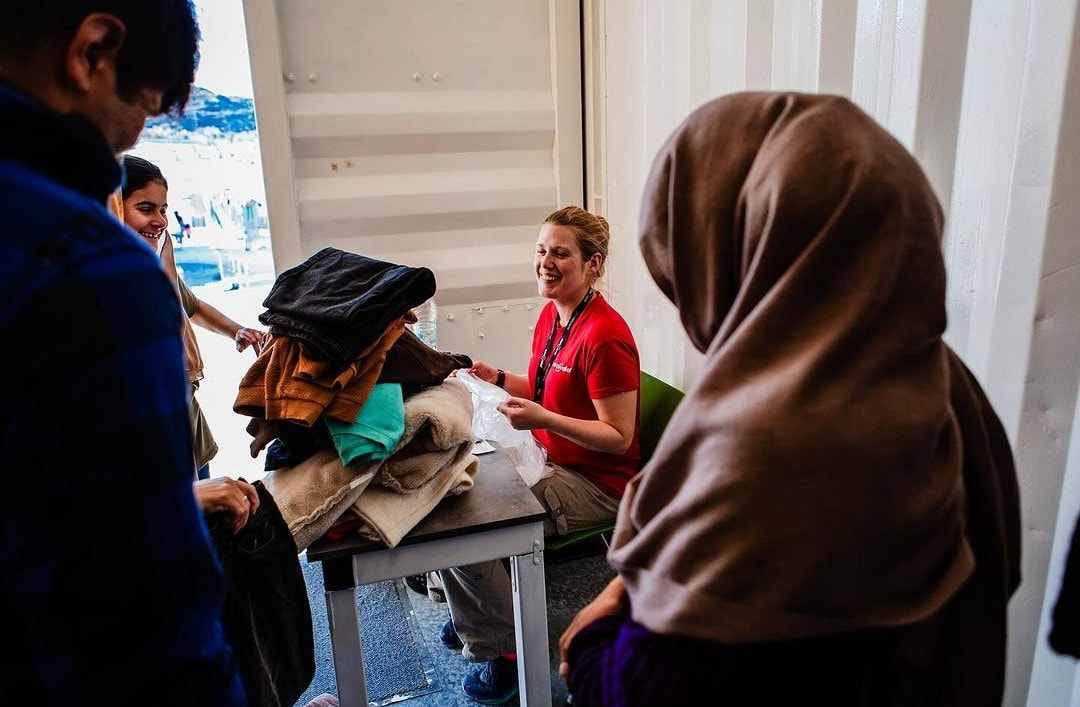 Photo Credit: Eurorelief Photo Credit: Eurorelief But right behind me, sticking out as a complete oddity in the basket, was a pair of pink winter boots. When I presented these as a possibility, her eyes lit up and she eagerly put them on, a huge smile spreading across her face. I pulled out a package of clothing for her corresponding age and whispered my prayer. As mom and daughter opened it up, everything seemed good for sizing, except the winter coat, which was thin, dark and too small. Reaching into the bag of extra coats, I pulled out the first one, a puffy winter coat covered in butterflies. Again, the wide smile and bright eyes greeted me. She pulled this jacket to herself and hugged it close to prevent the possibility of any alternate decision by mom. Mom and daughter gave a smile of thanks and then they were off to attend to other matters for new arrivals in the camp.  About an hour later, this same girl showed up and lingered just outside the distribution hub, clad in her pink boots and her butterfly coat. At turns she inspected her boots with care and admiration, and then the butterflies on her coat. Then she would smile at me and pose in such a way that I could appreciate the absolute perfection of the outfit. Amid the cold, the wet, the wind, the uncertainty and the hardness of things, this moment of joy was a welcome demonstration of thoughtfulness by the God who sees, knows and cares. As told by Maria Gina Bacalsco. I went on a one-day prayer pilgrimage at the Fort Erie border in October. It was truly a meaningful and glorious day. There were a few things we were to do to prepare for this pilgrimage, and one included bringing along a stone to leave behind at the end of our day. The stone we were bringing from home was supposed to symbolize a commitment to let go of an aspect of our life that hinders us from living out what God has taught us on this journey. Nineteen years ago, I lost a baby. A dear friend sent me a beautiful agate stone to comfort me. The night before our pilgrimage, I remembered this stone and dug it out of my closet. Our day in Fort Erie included listening to refugees at a shelter share their story, and I really connected with one of the incredibly strong, courageous mothers. She had recently given birth prematurely, and having to be separated from her son who was in an incubator at a hospital 50 KM away was a heart-wrenching trauma added to the many she had experienced to this point. After we prayed for the refugees that afternoon, I was so glad that Alison suggested I might want to leave my stone with this new mom. I did leave behind the stone as a prayer that the strength and stability I have experienced for the last nineteen years will be God’s gift to a new mother and new refugee in Canada. As told by Brian Jose, IAFR Canada Board Member 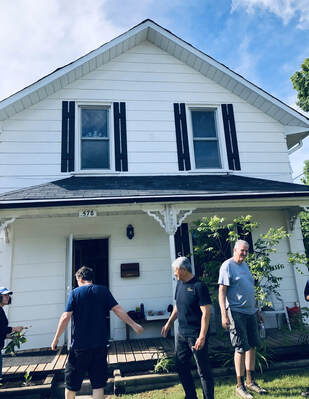 "It’s done, Brian. The funding is there. When will it be available?” I went silent. I had called Sandra Ryan, Global Mission Pastor at The Peoples Church, to ask advice on raising money for asylum claimant housing. In less than 10 seconds, I had marching orders. The Peoples Church had been given a grant and had been asking God for a “refugee-friendly landlord” — often the biggest barrier to getting started — and a suitable house outside the expensive Toronto urban concentration. Sandra had done this before. She didn’t need to wonder if this was an answer to the prayers of many.  Four of us — two couples ‘of a certain age’ — had been kicking around ideas about converting our retirement fund (a rough and ready rental property for students in Peterborough) into a safe and comfortable first-stop housing space for refugee claimants. Between us we had experience, passion and a Biblical conviction that God’s people ought to be an active and intentional blessing to “the stranger in the land.” (Leviticus 19:33-34 and, well, all over the Bible.) So, when God suddenly dropped the means in our laps, we kicked into action. This house had never been a palace and three years of renting to students had left its mark. Every room needed work. Between our personal relationships, and volunteers drummed up by IAFR and The Peoples Church - some of them with lived refugee experience themselves - we gave the house a makeover: dozens of litres of filler and paint, refurbishing the kitchen, fitting out a new laundry area (which now doubles as the office), flooring, lighting, replastering a collapsed ceiling, landscaping and much, much more. My knees haven’t recovered 11 months later. Just at the point where it all seemed completely overwhelming, a church sent a financial gift so we could hire some expertise. We did three months’ work in about 3 weeks. 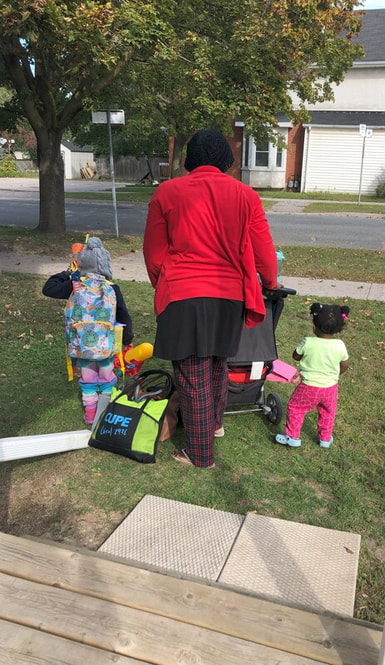 Then came the first guests — 11 people (including two families) from three countries, in four bedrooms, with a shared kitchen. Helen Reader, the Settlement Coordinator, eases the adjustments and helps residents navigate what can be bewildering hurdles. As one recent guest shared, “Selah House helps in so many ways, not only with the shelter, but with information and support on everything we need to do- from making an appointment for the New Canadians Centre, to making a doctor appointment for my son, as well as being safe in a home and everything supportive, including supplies for the house. It makes me feel at peace while I wait for my refugee application to be approved. You make this difficult process easier for all of us." Selah House is no longer the project of two couples and one church, though.
Local churches provide hospitality, advice, friendship, furnishings, and housewares for those moving out and setting up their own homes, Bible studies and language help. Because of the dynamics of home-based accommodation and the ethos of caring, Selah House gives stronger community and high-touch care for far less than half of the cost of refugee claimants housed in government-funded institutional settings. Everybody wins. "When a stranger sojourns with you in your land... you shall love him as yourself." Written by Rob Perry, an IAFR Canada team member. This 10 kilometre prayer guide is designed to help you reflect on some of the realities faced by refugees in our time. Each new kilometre begins with a short reading. Walk 10 km alone or in community, stopping each km to pray with the new focus. Or, walk a km a day or a week and pray as you go. If you want to learn more about the work of IAFR Canada and how you and your church can come alongside our mission to help refugees survive and recover from forced displacement, please explore iafr.ca. Downloadable version in English French Spanish. K1: Türkiye and Syria In late February 2023, the death toll from the earthquakes in Türkiye and Syria surpassed 50,000 people. This tragedy added another immense challenge for two countries already facing overwhelming hardships. According to the UNHCR, prior to the earthquakes, Türkiye was already hosting more than 3.7 million refugees, the most of any country in the world, and, according to the same report, Syria is currently the country in the world from which the most refugees have fled (more than 6.8 million). It is impossible to predict exactly what the long-term ramifications will be for both countries. As you walk this first kilometre, pray for all the people who are newly displaced because of this disaster. Pray also for the internally displaced persons and refugees for whom this is another tragedy on top of all they have already gone through. K2: Your Hometown Imagine your hometown. Maybe you still live there, or maybe you haven’t been there for a long time. What did you love about it? What made growing up there unique and memorable? Now picture your neighbourhood… imagine the schools you attended, your friends who lived down the street, the places you would hang out. Now imagine a war starting in your country… in your city… in your neighbourhood. Imagine infiltrating soldiers, the sounds of gunfire, the fear of bombs. Devastation. Having imagined this, pray for displaced people in the world, people for whom this fantasy is a terrible reality. Pray into their loss and grief and ask God to be with them. Pray also for your country, your city and your community, that they would be places of welcome for people who have been forcibly displaced from their communities. K3: The Numbers In the last decade the number of forcibly displaced people in the world has more than doubled. In 2022 the number passed 100 million. Don’t forget that each number represents an actual human being – someone with a story, a family, a community, hopes, dreams, and a name. Exodus 33:15-18 says: “Then Moses said to [God], “If your Presence does not go with us, do not send us up from here. How will anyone know that you are pleased with me and with your people unless you go with us? What else will distinguish me and your people from all the other people on the face of the earth?” And the Lord said to Moses, “I will do the very thing you have asked, because I am pleased with you and I know you by name.” Then Moses said, “Now show me your glory.” As you walk this kilometre, lift up the millions to the God who knows each one by name. K4: Unacompanied Minors Imagine a situation in which conflict or persecution is so severe that it is safer and wiser to send your child far away to another country rather than keep him or her with you. Violence is at the door, so you send your child or children ahead of you, unaccompanied, in hopes that they will find safety. According to the UNHCR, approximately 40% of refugees in the world are under 18-years-old. Of these, in 2021, over 150,000 young people were unaccompanied minors. Around 41,000 of these were found in Ethiopia alone. Pray for these children and teenagers, that they will be protected along their journeys and welcomed safely into host communities. Imagine your child alone traveling dangerous paths and waters looking for safety and home. Pray earnestly for angels to guide and protect them along the way. K5: Uganda According to the UNHCR, as of January 31, 2023, there were 1,501,552 registered refugees in Uganda, which makes Uganda the nation which hosts the most refugees in Africa. Although Uganda still faces many challenges, and is still searching for peace in many ways, we thank God that this country, which not very long ago was embroiled in terrible civil conflict, is now a place of refuge for others. Pray for the refugees living in refugee camps and in difficult urban settings throughout Uganda – for God’s provision and restoration. Pray also for peace for Uganda’s neighbours. The unrest in many African countries does not make the news as much as other disasters and wars, but the challenges are very real. Of the approximately 1.5 million refugees in Uganda, more than half come from South Sudan, and over 32% come from the Democratic Republic of Congo. Others come from countries such as Somalia, Burundi, Eritrea, Rwanda, Ethiopia, and Sudan. 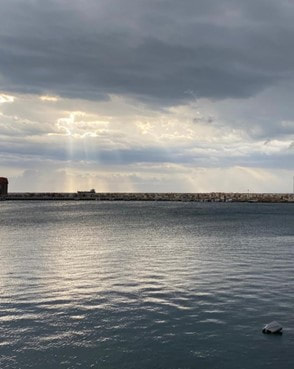 The sea as seen from the Greek island of Lesvos. The sea as seen from the Greek island of Lesvos. 6: The Sea In 2021, 3,231 people were reported dead or missing trying to find safety across the Mediterranean Sea (news.un.org/en/story/2022/06/1120132). Seven or eight years ago, during the Syrian crisis, this sea crossing was featured heavily in the news. This is much less the case now. However, some still refer to the Mediterranean as the “deadliest border in the world.” Men, women, and children flee every day in unsafe boats and rafts in search of safety in Europe. Some are pushed back by patrols, some sink, many onboard are not swimmers. It is extraordinarily dangerous. Pray for people on the sea, that God would watch over them, calm storms and bring them to safety, and to true welcome. Psalm 107:28-30: Then they cried out to the Lord in their trouble, and he brought them out of their distress. He stilled the storm to a whisper; the waves of the sea were hushed. They were glad when it grew calm, and he guided them to their desired haven. K7: Scripture
In Isaiah 64 the prophet calls on God to “rend the heavens and come down.” Seeing ruins around him, he asks how long until God acts, comes down and helps his people. As you walk, join the emotion and passion of the prophet, and pray this passage over the people around the world who are likewise calling out to God to help them. Oh, that you would rend the heavens and come down, that the mountains would tremble before you! 2 As when fire sets twigs ablaze and causes water to boil, come down to make your name known to your enemies and cause the nations to quake before you! 3 For when you did awesome things that we did not expect, you came down, and the mountains trembled before you. 4 Since ancient times no one has heard, no ear has perceived, no eye has seen any God besides you, who acts on behalf of those who wait for him. 5 You come to the help of those who gladly do right, who remember your ways. But when we continued to sin against them, you were angry. How then can we be saved? 6 All of us have become like one who is unclean, and all our righteous acts are like filthy rags; we all shrivel up like a leaf, and like the wind our sins sweep us away. 7 No one calls on your name or strives to lay hold of you; for you have hidden your face from us and have given us over to our sins. 8 Yet you, Lord, are our Father. We are the clay, you are the potter; we are all the work of your hand. 9 Do not be angry beyond measure, Lord; do not remember our sins forever. Oh, look on us, we pray, for we are all your people. 10 Your sacred cities have become a wasteland; even Zion is a wasteland, Jerusalem a desolation. 11 Our holy and glorious temple, where our ancestors praised you, has been burned with fire, and all that we treasured lies in ruins. 12 After all this, Lord, will you hold yourself back? Will you keep silent and punish us beyond measure? K8: Peace The World Population Review (worldpopulationreview.com/country-rankings/countries-currently-at-war) lists 31 countries that were in conflict in 2022 - some experiencing civil war, some at war with another nation, some surviving terrorist insurgencies, some in the midst of drug wars, and some experiencing ethnic violence. As you walk this next kilometre choose one or two off this list. Pray for lasting peace. Pray for regime changes. Pray for healing. Pray for God’s kingdom to come.
K9: The Church Wherever people have been displaced, the Church is nearby. His Church can take many forms… Often God’s Church looks like other forcibly displaced people… believers, pastors, and church leaders, who have also been forced to flee for their lives but are still representing God’s hope along the difficult journey. The Church can also look like local refugee churches in refugee camps around the world - places of community, hope, and support. Sometimes the Church looks like Christians finding ways to offer practical support in various places along the refugee highway – Christians in Colombia washing people’s feet and offering new shoes to those fleeing from Venezuela; Christian NGO workers visiting and labouring in refugee camps in Greece, Germany, Lebanon, Malawi or Kenya; or churches providing housing for newly arrived refugees in Canada, the United States, Romania, Turkey or Moldova. Pray that people would experience comfort, truth and hope through God’s Church everywhere along the refugee highway. K10: Worship During the final kilometre read and pray Psalm 84. Find a line or an image that stands out to you. Worship God and declare his sovereignty over the whole world. For the director of music. According to gittith. Of the Sons of Korah. A psalm. 1 How lovely is your dwelling place, Lord Almighty! 2 My soul yearns, even faints, for the courts of the Lord; my heart and my flesh cry out for the living God. 3 Even the sparrow has found a home, and the swallow a nest for herself, where she may have her young-- a place near your altar, Lord Almighty, my King and my God. 4 Blessed are those who dwell in your house; they are ever praising you. 5 Blessed are those whose strength is in you, whose hearts are set on pilgrimage. 6 As they pass through the Valley of Baka, they make it a place of springs; the autumn rains also cover it with pools. 7 They go from strength to strength, till each appears before God in Zion. 8 Hear my prayer, Lord God Almighty; listen to me, God of Jacob. 9 Look on our shield, O God; look with favor on your anointed one. 10 Better is one day in your courts than a thousand elsewhere; I would rather be a doorkeeper in the house of my God than dwell in the tents of the wicked. 11 For the Lord God is a sun and shield; the Lord bestows favor and honor; no good thing does he withhold from those whose walk is blameless. 12 Lord Almighty, blessed is the one who trusts in you. Danielle Steenwyk-Rowaan Open Homes Hamilton Team Leader At Open Homes Hamilton, we welcome newly arrived refugee claimants by pairing them with Hosts who have some extra space in their homes for a few months while they get on their feet. From the outside, it looks like we are the ones doing the welcoming. And yet, so often the tables are turned on us in a beautiful, unexpected way that echoes biblical stories of “strangers” revealing the face of God. Just before the pandemic started, a Host family in Ancaster welcomed a Nigerian woman and her two small children. Soon after they arrived, everything shut down. You probably have very clear memories of those days of adrenaline and uncertainty. It turned out that the Guest had been a seamstress in Nigeria, and that her Host sewed women’s menstrual supplies for a charity. Soon, they were sewing together, and quickly moved on to sewing masks, as we all figured out how to protect ourselves and those we love from this pandemic. The Guest continued sewing, and perfecting her mask designs, and eventually sold them, both to members of our community and through a stall at the farmer’s market. Now, she has started a career as a PSW here and has been supporting some of the most vulnerable people in our society through this pandemic. She’s in her own apartment and is flourishing. And every time I share with her that there is a new Guest, she sews another batch of masks and insists on giving them to us for free. When a Colombian Guest had a baby, she sewed a diaper bag. When another Guest moved to her own apartment, she sewed a lunch bag. Once when I visited her, she had a gift waiting for me. She had designed an outfit for me, based on pure guesstimates about my dimensions, and asked her sister in Nigeria to sew an outfit for me, that she then paid to have shipped here for me. Who is really welcoming whom? Rhihannat* is a blessing to me. Years ago, I was a volunteer with Micah House and was matched with a newly arrived Colombian family: parents and their two young daughters. We hit it off. They had a great sense of humour and loved to tease me about my broken Spanish. They came to my wedding. I came to their daughter’s first communion. We celebrated Christmas Eve together and Juan cooked bunuelos, a deep fried pastry from Colombia. We camped together, and he made this delicious herby sauce called chimichurri to top our barbecued steaks. When I told them about my now-husband, then-boyfriend Dan, Juan said very seriously that my Colombian father would have to approve of him. Who is welcoming whom? I received God’s love through them. That’s part of why we call the volunteer groups who support a Guest “Kinship Circles”, because often, we are becoming family. Not always. But that is the invitation. And that was the call on the people of Israel--to enfold the “stranger”, those who were without kin in the land, into family. To share resources. To celebrate together. To belong to each other.
We have a chance to belong to each other in a way that explodes the boxes of giver/receiver and long-time Canadian/refugee claimant. I often have an opportunity to receive God’s love through the people I’m supposedly serving. What would it look like for you to follow Christ into being a Guest, into receiving the gifts that refugees bring? What would it look like for your church, or your family? Written by Laura Dobrowolski, Executive Director of IAFR Canada. Last year, I was able to visit Dzaleka Refugee Camp in Malawi, home to more than 55,000 people. On this visit I met with many inspiring leaders who seek to build peace and hope within the community. 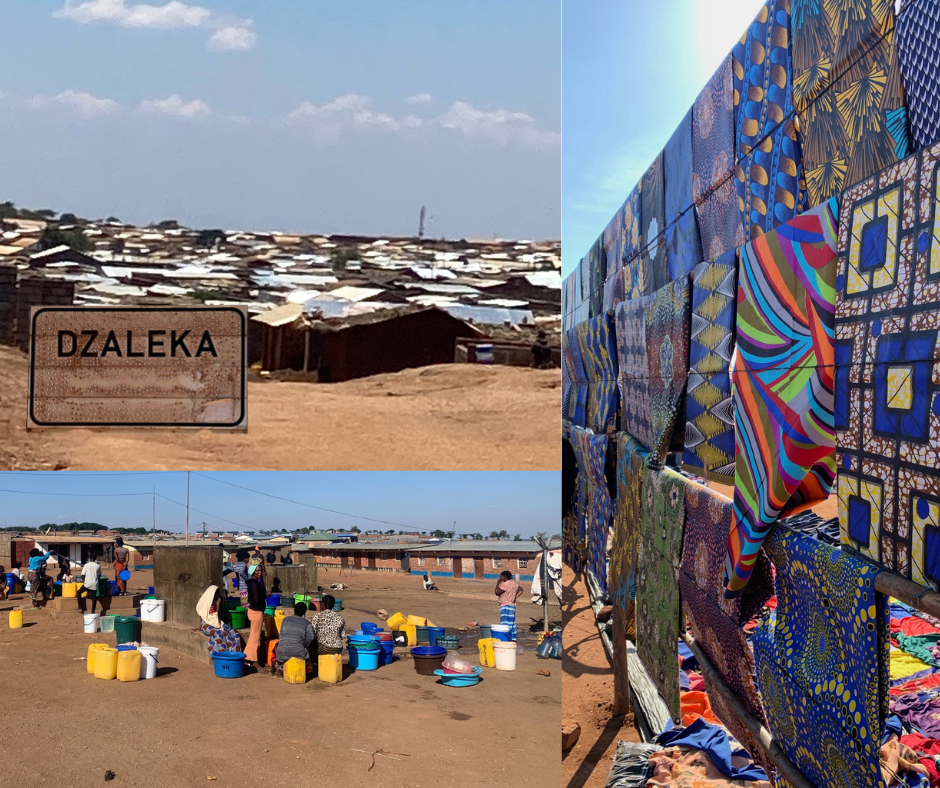 One such leader was Pastor Justin, an energetic entrepreneur who happily toured me around the brick-making enterprise his church engages in to support its ministry work, as well as the plot of land he farmed to supplement his own needs and the widows and single mothers within his community. It was inspiring to witness the kind of initiative and solutions that he and his community had generated to address the needs before them, given how difficult the conditions were in the camp. Fast forward to this past June. The World Food Programme (WFP), facing shrinking revenue and increasing costs, cut a large number of refugees off the distribution list. Even though the distribution amounts to approximately 15 cents per day, at least 300 vulnerable households were immediately plunged into dire straits. Over the next couple of years, the WFP plans to systematically cut all camp residents in Dzaleka off the household distribution. In addition, Malawi’s policies make opportunities to earn a living outside the camp very limited. As a result, the majority of refugees in Malawi are completely reliant on food aid and other external assistance for survival. Dzaleka camp residents are facing a food crisis and the need for durable solutions is pressing. When the cuts by the WFP happened, Pastor Justin was already thinking about solutions. Could we acquire some land and train camp residents to farm? He felt the urgent need to equip people with the tools with which they could do something to address the crisis at hand. Meanwhile IAFR Canada met with another Canadian charity, Thrive for Good, who trains leaders to farm small patches of land called Life Gardens. This model has already worked in many countries, including Rwanda and Kenya. Life Gardens work with a minimum of 6 hours of sunlight and a minimal amount of water, enabling people to grow nutrient-rich food. It is sustainable, scalable and low-complex. It increases access to nutritious food and involves low-cost technology. The idea emerged to support Pastor Justin’s farming solution with the expertise of Thrive for Good’s Life Garden model.
In the meantime, IAFR is looking to support the current need for food with an emergency shipment of dried vegetable mix through a partnership with Ontario Christian Gleaners. This organization provides 3 lb packages of dried vegetable and protein mix, that when reconstituted provides 80 servings of nutritious meals. A full container shipment of the vegetable mix will provide 1 million servings to help sustain people now. 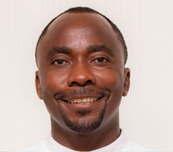 Over the long term, we are partnering with INUA Advocacy, an on-the-ground refugee-led organization who advises governments on the development of healthy refugee policies centered on self-reliance, participation and sustainability. INUA has been a trusted frontline advocate for the reinstatement of vulnerable households that have been systematically and wrongfully removed from the WFP distribution. They will continue to lobby and campaign for better laws for refugees and will press the Malawian government to follow through with implementing their Refugee Integration plans pledged in 2019. The fulfillment of these pledges would enable residents and partners to grow farming beyond small individual pieces of land into larger spaces that can support more people and can provide food that will go to market. This advocacy will therefore underpin the food crisis response so that refugees can eventually exercise the right to work and to mobility within the country, giving them the opportunity to establish food security and to flourish as contributing members within the country of Malawi. An excerpt from My Father's Son, written by Emmanuel Vin Mudah* The bus took off from Kumunazi heading for Karango as the sun set. It had been sold out with all overhead compartments packed with people's luggage. The mix of sweat and soil would grace their sojourn in that garbage track. Mwiza stood in the aisle to allow the children to sit and sleep with more comfort. Now and then, Anita would stand up to take turns with him so he could have some time to rest. At times, Mwiza would sit, hold Mizero on his shoulders, have Sarafina on his lap while Anita sat with Rukundo. This inconvenience did not register in the minds of the children. As far as they were concerned, it was a trip to a remote vacation... The bus was going at a steady speed, through urban and rural areas. Virgin forests formed most of the terrain they crossed. Occasionally they would stop to exchange drivers, give some passengers a chance to relieve themselves, drop passengers off and pick up others along the way. At one stop, in a valley vaunting Masuku trees, two soldiers came on board. Mwiza and Anita could hardly keep their leaping spirits tethered. "Shush, stay quiet all of you. Don't say another word," Anita warned the children. It was a needless warning. They had long been schooled in the art of surviving. The two soldiers came and sat on aisle seats opposite to that of Mwiza. Out of politeness, two young guys had offered them space. It was to Mwiza's relief that they were just passengers. He had thought they would search for Rwandan refugees enroute to seek asylum in Malawi. Mwiza and Anita just looked ahead; their minds yoked on the wavering future, however uncertain the colours looked. Sarafina and Mizero were with Anita by the window. Rukundo was standing between Mwiza's legs, his eyes alarmingly red. "You guys look exhausted; looks like it's you fellas carrying the bus around. Where are you headed?" one of the soldiers asked with a thin smile. "Just an exigent family event. We are attending a funeral in Dar es Salaam," Mwiza answered. He had been inured by experience, into a creative liar. With time, he had learnt that good diction and adding layers to lies made them more potent. "That's nice of you. To travel all this way for family, that's some rarified feat. Do you mind," the soldier took off his hat and gave it to Rukundo who was looking at him directly in the eyes. "All the girls are looking at you now, cowboy." Mwiza awkwardly smiled. He was in no spirit to chitchat, but he did not want to be rude to the soldiers. Without uttering a word, Rukundo accepted it from him and put the hat on his head. Mwiza held his breath and prayed to God none of the children would utter a word in Kinyarwanda. After passing an unnerving bridge midway across a veld, the talkative soldier stood up. “Please, God,” Mwiza thought, “Seal my children's little mouths.” "I think we have arrived," the soldier said, looking at his colleague. They both looked outside, looking for clues to ascertain their destination. "This must be it. It should be our stop." The other soldier stood up too. "Sorry buddy, I will have to hold on to this. But I hope you will be a soldier when you grow up. Will you?" the chatty soldier said. Rukondo did not respond. "Safari njema," he said, wishing them a nice trip. Rukundo waved at them as they threaded through the aisle on their way out. The bus stopped momentarily to let the soldiers off and then continued. Relieved, at last, Anita sat quietly, looking out the window into the vast veldt outside. She was absorbing the beauty of Tanzania, the seething green vegetation, the boastful hills, and valleys. After a while, she began to see modern high-rise buildings at a distance. "Dar es Salaam is a mesmerising city, honey. Look!" Anita said, nudging her husband. He had his eyes closed, trying to rest. He opened his eyes and peeped outside, "I have never seen buildings that tall!" "The city is majestic," Anita agreed. "Ladies and gentlemen, we will be at the Dar es Salam depot in about twenty minutes. We have an hour layover. Feel free to stretch your legs and stroll around the city," an announcement came through the intercom. It surprised Mwiza to see how on the same earth, not even across an ocean, life was going on as if nothing had happened in a next-door country. Up until the age of eleven, my life was interrupted by major acts of violence. First the Rwandan genocide and the 1997 Tanzanian forceful repatriation of all Rwandan refugees. An exodus that led to hundreds of refugee deaths. I did not have formal education until 2001 when my surviving family settled in Malawi. I squeezed 12 years of education in 8 years and graduated in 2009 among the top ten best students in the nation.
*Just released!!
Based on a true story, My Father's Son is a tale of courage and forgiveness in the face of betrayal and crimes against humanity. In the land of a thousand hills, Rwanda, Dr Mwiza lived under the illusion that his bliss was eternal. In the background, the tension leading up to the Rwandan genocide swell and spread like an ugly outbreak. The darkness sent his family through rivers rife with floating bodies and the uncertain bowels of strange lands. All's well that ends well, or so they thought while trying to resettle to Canada. Mwiza received a medical report that sent his family into an abyss but also sparked a journey of healing. It brought a family fractured by traumas of war closer together against a common enemy. My Father’s Son by Emmanuel Vin Mudah, released in May 2023, published by LivenBooks. Dzaleka refugee camp is in the country of Malawi. A former detention centre for political prisoners, it is now home for over 54,000 refugees from countries such as DRC, Burundi, Rwanda, Ethiopia and Somalia. Through our partners, There is Hope Malawi, and Health Partners International of Canada, we have collaborated to bring humanitarian medical kits to the health clinic that serves the camp and the surrounding community – over 80,000 people. Our executive director Laura Dobrowolski recently visited the camp and returned with many stories of beauty and hope. Here is one reflection... It was Sunday afternoon in the camp, and this small and festively decorated church was a gathering spot for youth from many churches within the camp. They came together for a friendly Bible Quiz competition (complete with prizes) and finished with some spoken word and musical numbers, demonstrating energy and talent, joy and creativity. It was a beautiful reflection of the life and community to be found in Dzaleka. The church is at the core of so much here:
May you be encouraged, as I am, by the work of faith communities within refugee camps to restore hope. And may you sense the invitation, as I do, through the UNHCR’s Call to Faith Leaders to welcome the stranger. WELCOMING THE STRANGER: AFFIRMATIONS FOR FAITH LEADERS A core value of my faith is to welcome the stranger, the refugee, the internally displaced, the other. I shall treat him or her as I would like to be treated. I will challenge others, even leaders in my faith community, to do the same. Together with faith leaders, faith-based organizations and communities of conscience around the world, I affirm: I will welcome the stranger. My faith teaches that compassion, mercy, love and hospitality are for everyone: the native born and the foreign born, the member of my community and the newcomer. I will remember and remind members of my community that we are all considered “strangers” somewhere, that we should treat the stranger to our community as we would like to be treated, and challenge intolerance. I will remember and remind others in my community that no one leaves his or her homeland without a reason: some flee because of persecution, violence or exploitation; others due to natural disaster; yet others out of love to provide better lives for their families. I recognize that all persons are entitled to dignity and respect as human beings. All those in my country, including the stranger, are subject to its laws, and none should be subject to hostility or discrimination. I acknowledge that welcoming the stranger sometimes takes courage, but the joys and the hopes of doing so outweigh the risks and the challenges. I will support others who exercise courage in welcoming the stranger. I will offer the stranger hospitality, for this brings blessings upon the community, upon my family, upon the stranger and upon me. I will respect and honor the reality that the stranger may be of a different faith or hold beliefs different from mine or other members of my community. I will respect the right of the stranger to practice his or her own faith freely. I will seek to create space where he or she can freely worship. I will speak of my own faith without demeaning or ridiculing the faith of others. I will build bridges between the stranger and myself. Through my example, I will encourage others to do the same. I will make an effort not only to welcome the stranger, but also to listen to him or her deeply, and to promote understanding and welcome in my community. I will speak out for social justice for the stranger, just as I do for other members of my community. Where I see hostility towards the stranger in my community, whether through words or deeds, I will not ignore it, but will instead endeavour to establish a dialogue and facilitate peace. I will not keep silent when I see others, even leaders in my faith community, speaking ill of strangers, judging them without coming to know them, or when I see them being excluded, wronged or oppressed. I will encourage my faith community to work with other faith communities and faith-based organizations to find better ways to assist the stranger. I will welcome the stranger. Written by Alison Witt, who co-leads the Prayer Pilgrimages with Sharon Schmidt. I used to think prayer was boring. Of course I knew prayer was important- but for me it was more in the same category as eating kale or going to the dentist. That category of ‘things I know are good to do but just don’t bring me delight’. Something changed along the way though and I can honestly say that prayer has brought me much delight over the past few years. Participating in neighbourhood prayer walks, spending time in interactive prayer rooms, and going on silent retreats have all been part of helping me learn to pray in more creative and expansive ways. When I was a child I was taught that prayer is a ‘two-way conversation between you and God’. That sounded really attractive, yet for most of my life that simply wasn’t my experience. My prayer life was much more of a monologue involving me pouring out my heart to God (or at its worst reading through my shopping list of prayer requests.) Slowly I am learning to listen. To pay attention. To hear what God is saying to me. And it is so energizing! One of the prayer practices that has been particularly life-giving for me is prayer pilgrimage. Pilgrimage is going on a journey with a particular spiritual motivation. Not as a tourist who goes to consume, but rather going with a posture of listening to God and encountering Him along the way. A few years ago I was invited to go on a week-long pilgrimage to Iona, Scotland. I had a specific question I was taking with me and seeking God's direction about. The journey was filled with prayer, reflection, worship, beauty and many hilarious adventures. And in the midst of it, God spoke to me. It was so incredibly personal and meaningful. I’ve come to understand that it’s not so much about the length of time - pilgrimages can be a week, a month, a year… or even just one day. It’s about the intention and the posture with which you are approaching your trip. Since prayer is at the centre of what we do at IAFR Canada we have been experimenting with ways to build pilgrimage into our ongoing ministry. Some of our team already went on an international prayer pilgrimage to the Mexican-Guatemalan border but we wondered if there are some strategic places right here in Canada where God might want us to go and pray. Border crossings are a liminal space- a place where life and death decisions are made and life altering actions occur. The Fort Erie- Buffalo border is one of the main official entry points for refugee claimants entering Canada. It is also a symbolic place that represents all the other unofficial, and official crossing points along the very extensive Canada-US border. We sensed that this is a place God was leading us to go and pray. So in early June we invited a group of pastors and ministry leaders to join us on a day-long prayer pilgrimage to the Peace Bridge in Fort Erie. One of the pastors who joined us was Jesse Hill from Philpott Church in Hamilton. He said “The prayer pilgrimage was a great opportunity to encounter a hidden side of the refugee experience, and to pray about how the Lord might be at work among refugees in my own community. It was both refreshing and eye-opening”.
These day-long pilgrimages are filled with learning about the experiences of refugee claimants, and learning about listening prayer, which have become two of my favourite things. So I guess it's no surprise that these pilgrimages to the border bring me great delight. (For the record, I am also experiencing much delight in eating fresh kale from my garden, but I still avoid going to the dentist.) IAFR Canada anticipates hosting day-long prayer pilgrimages to the CAN-US border twice a year, fall and late spring. If you know a church leader who might want to join us on a future prayer pilgrimage, please let us know! |
WELCOME!
Our vision is to help people survive and recover from forced displacement. We do this together with the church, both globally, and locally in Canada. Archives
May 2024
Categories |
ABOUT IAFR.CA |
OPPORTUNITIES |
AFFILIATES
|
CONTACTIAFR Canada
374 Sheppard Ave E Toronto, ON M2N 3B6 [email protected] Please Note: IAFR Canada does not sponsor people to resettle in Canada. You may want to contact one of Canada's sponsorship agreement holders. |
|
*IAFR Canada is a distinct organization from IAFR USA
All photos on this website are by IAFR unless otherwise noted |
© 2020 International Association For Refugees Canada




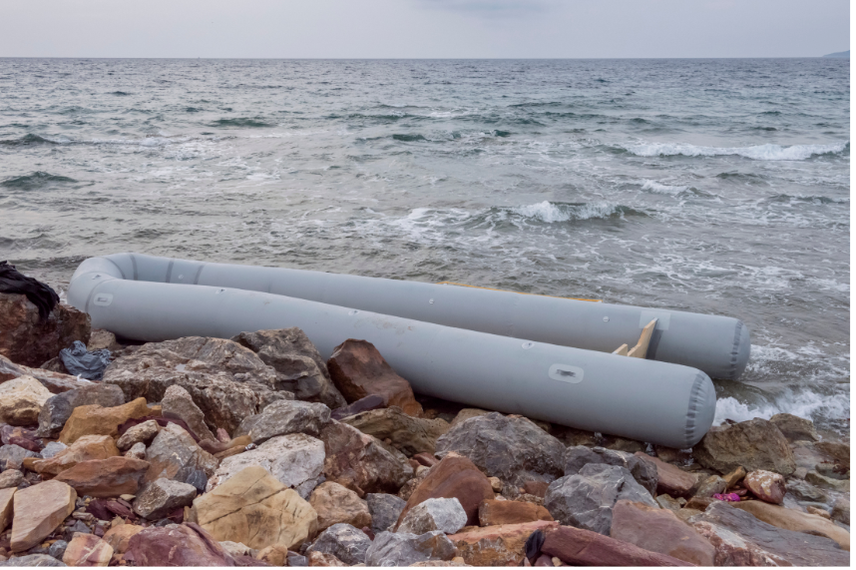
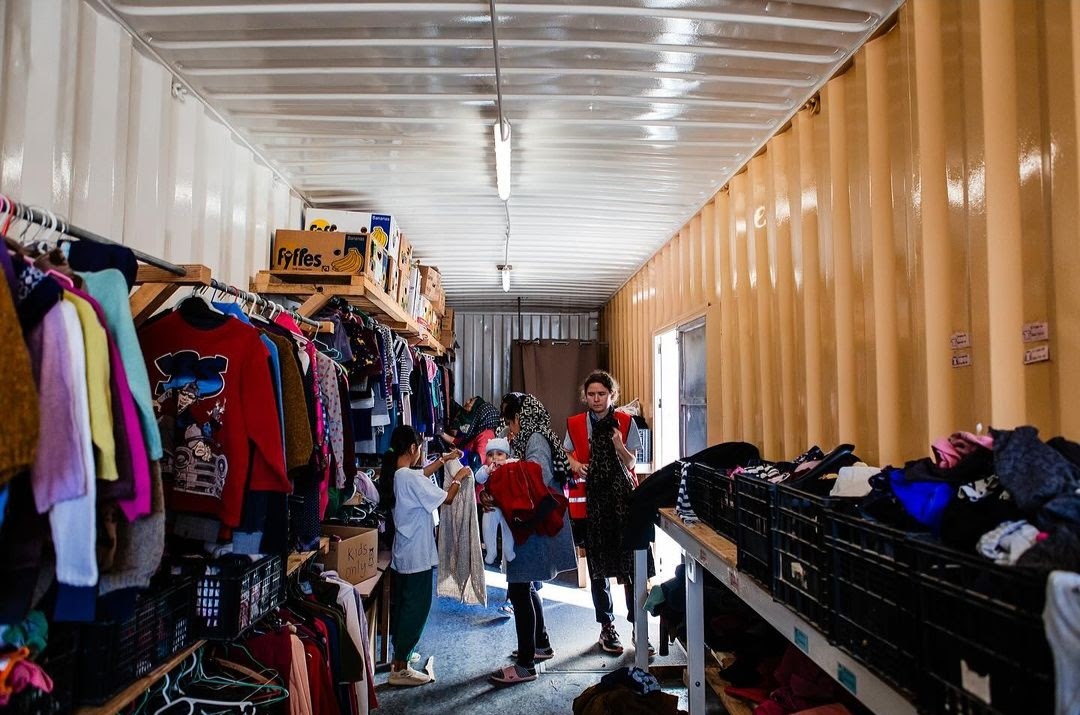
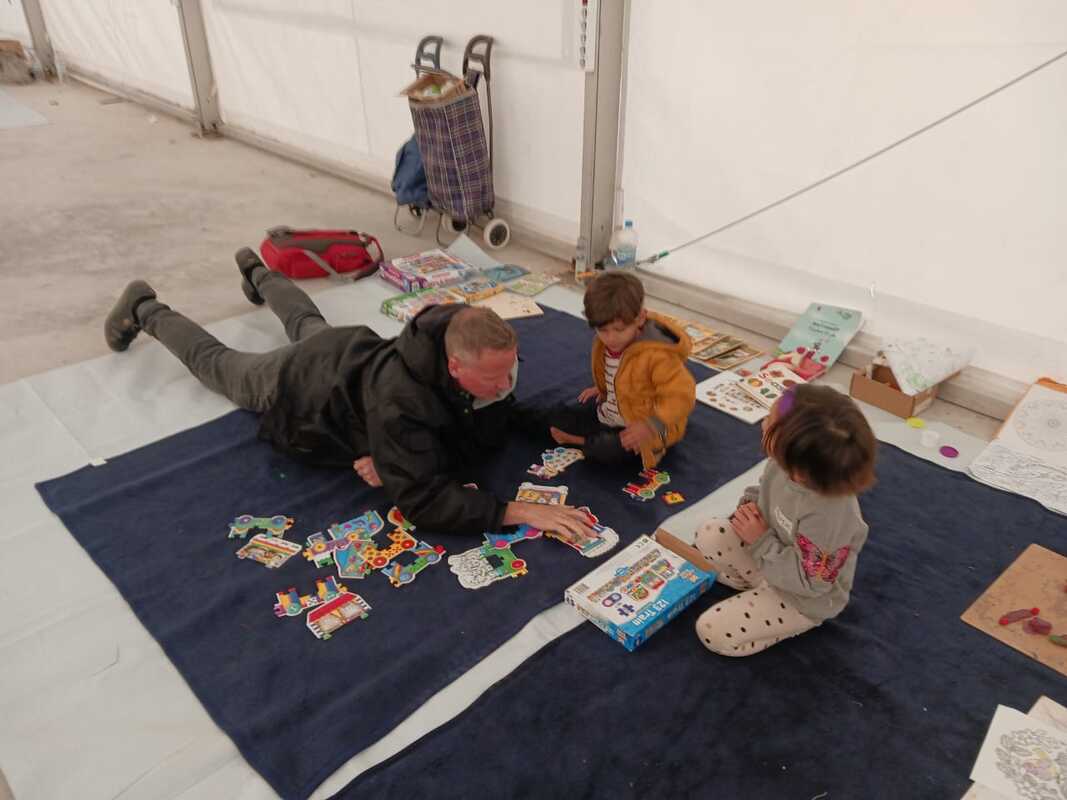
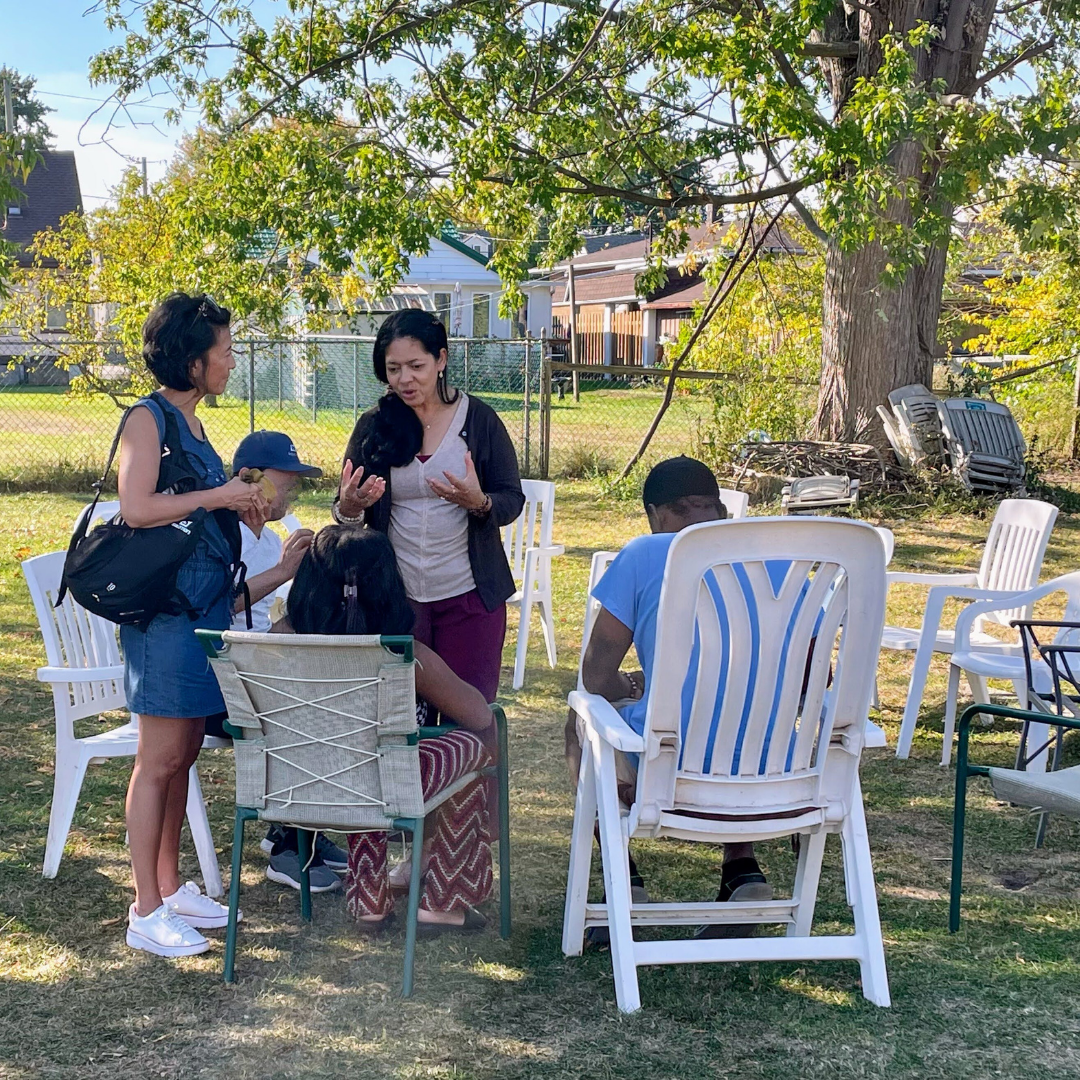
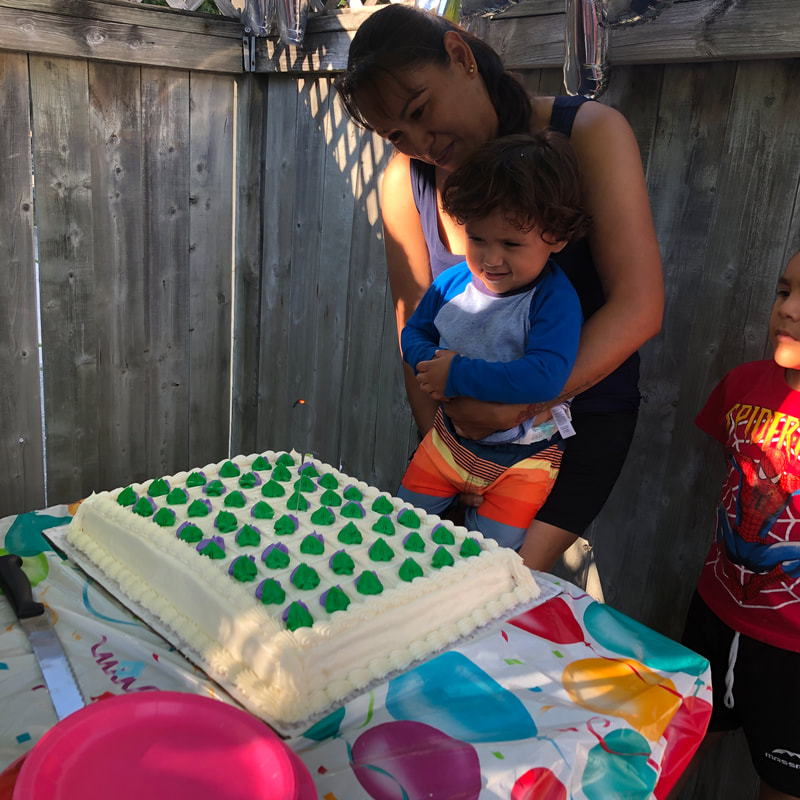
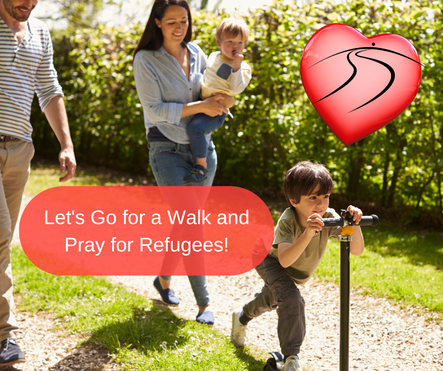

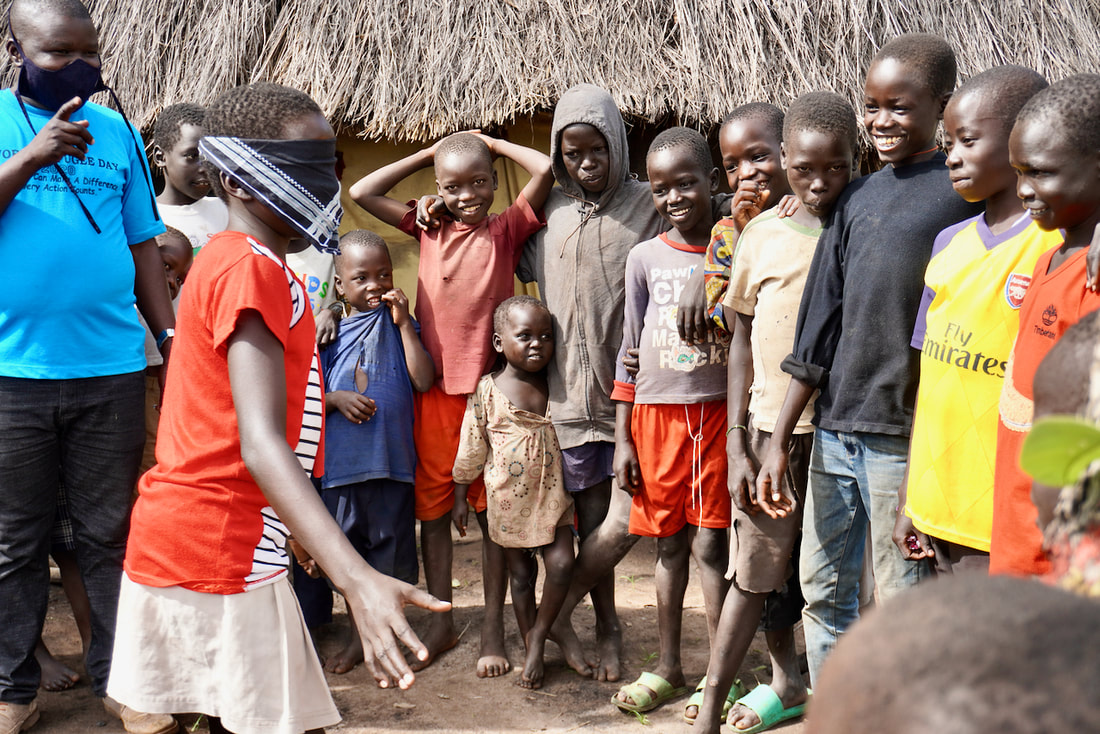
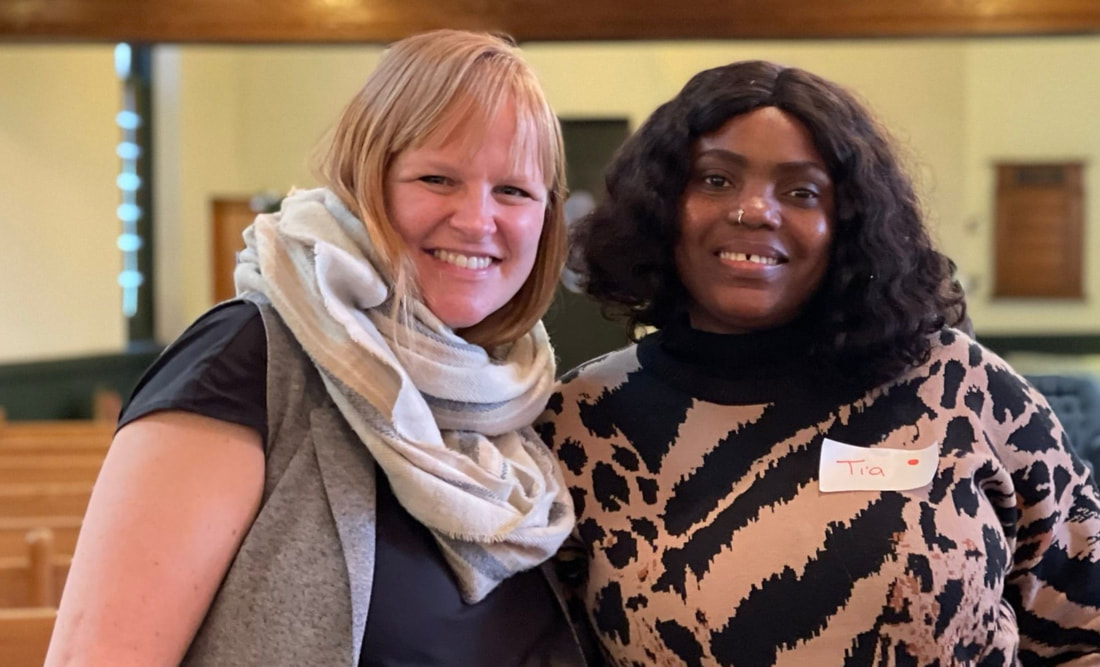
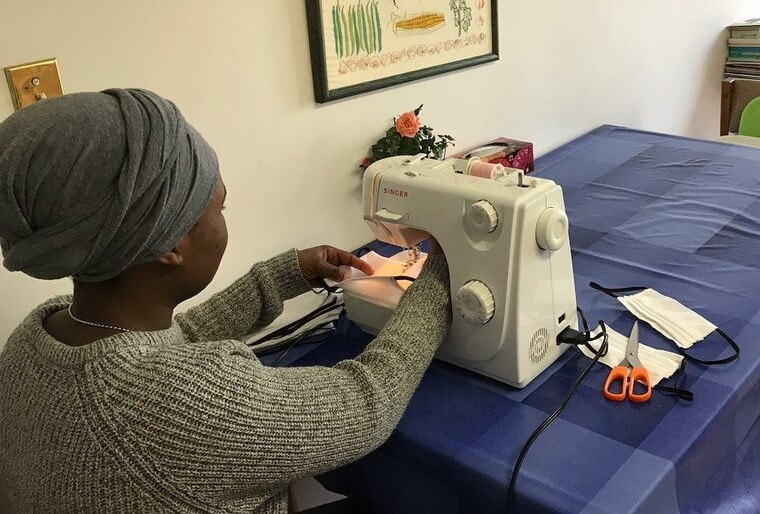
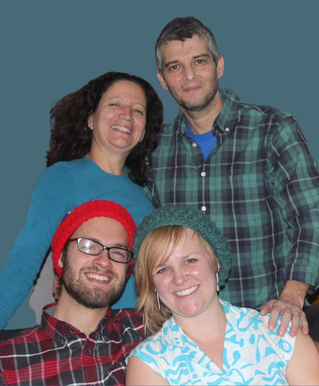
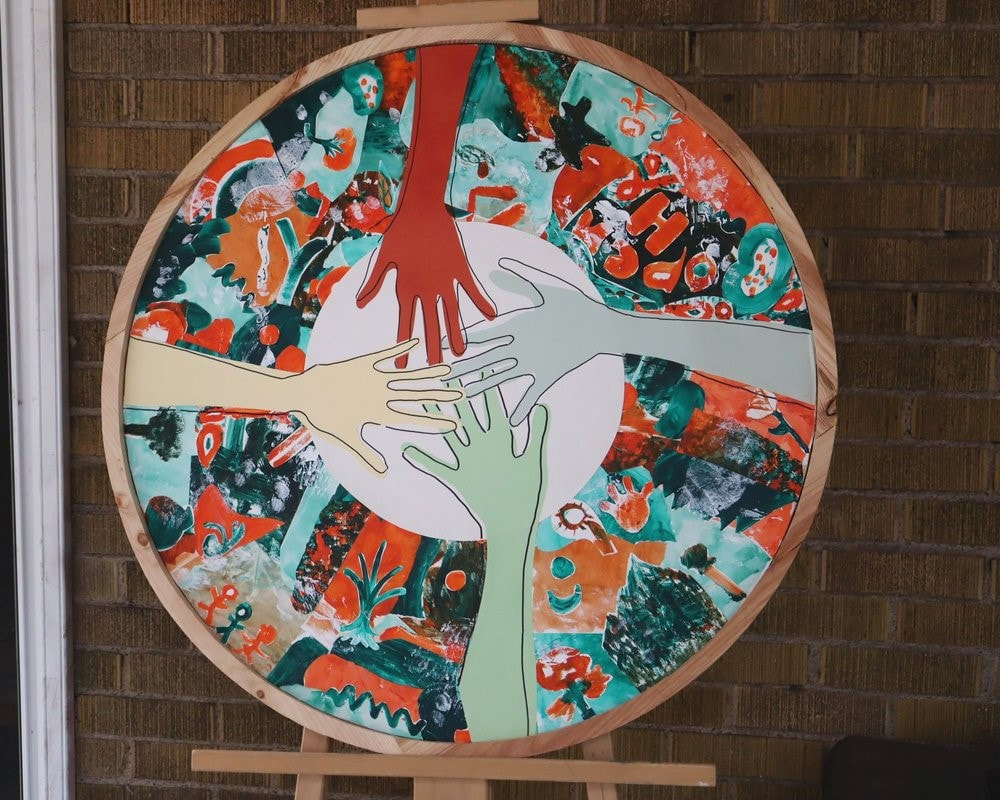
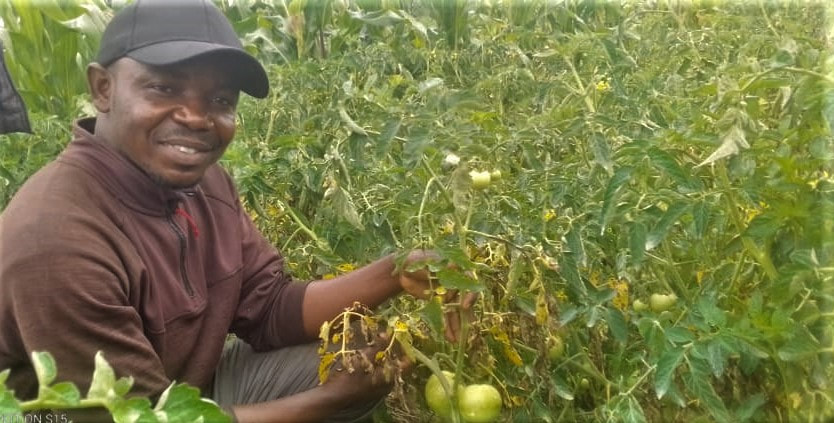
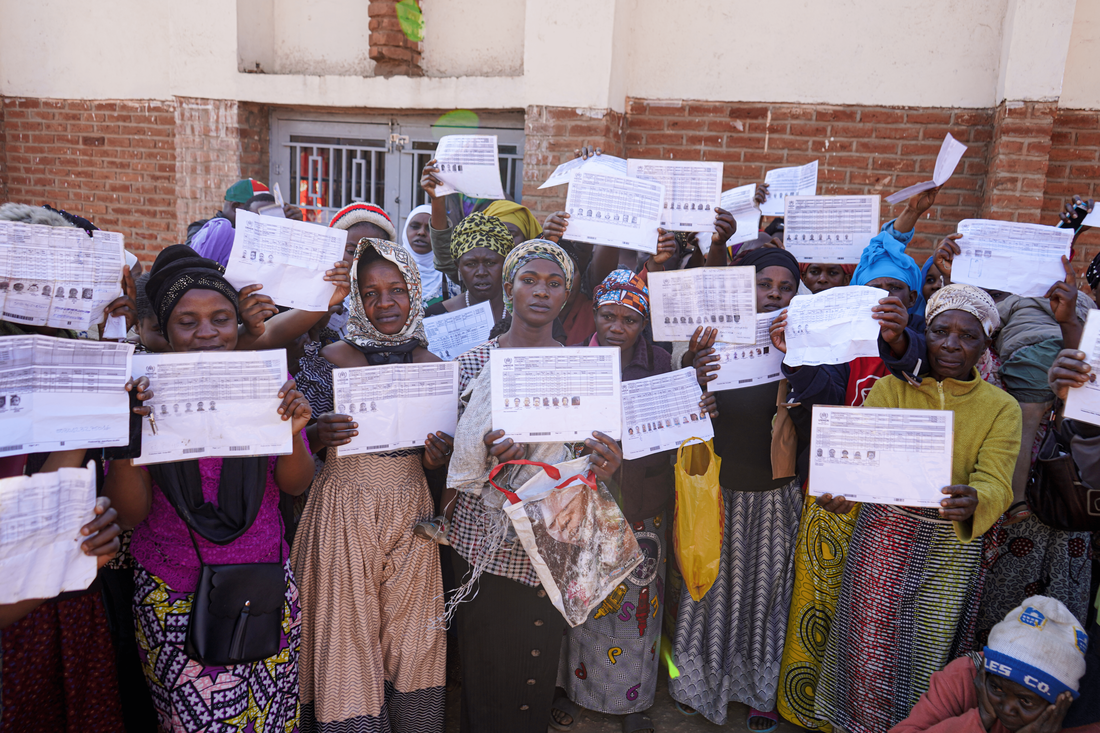
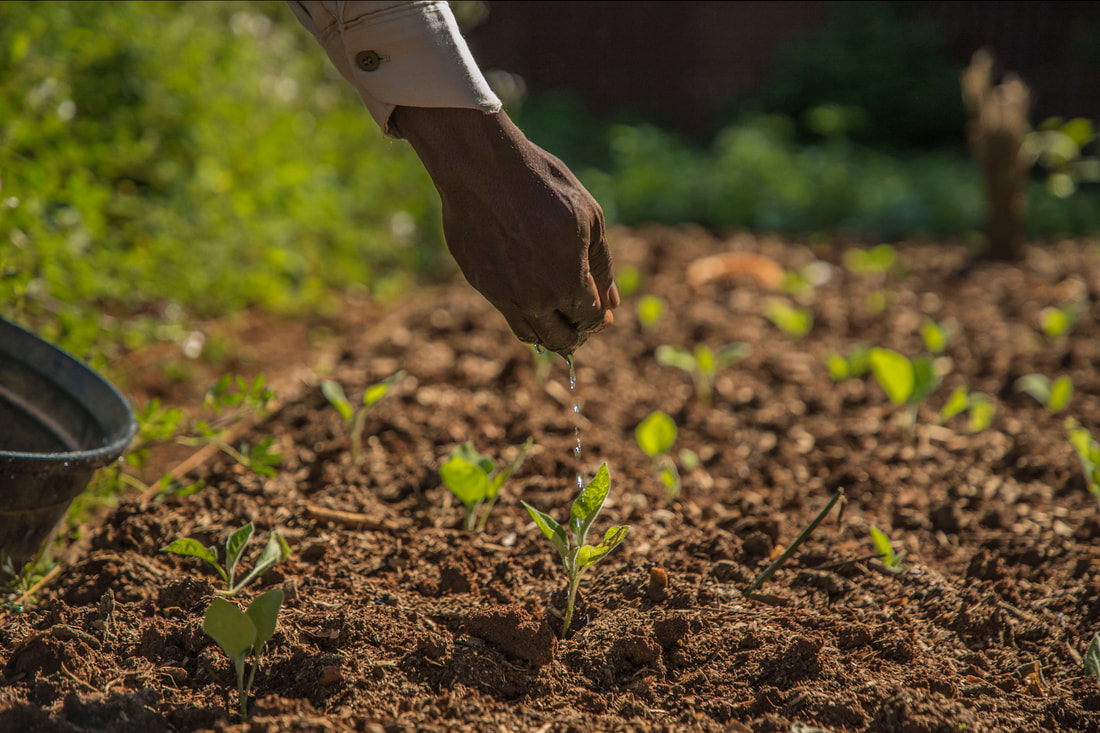
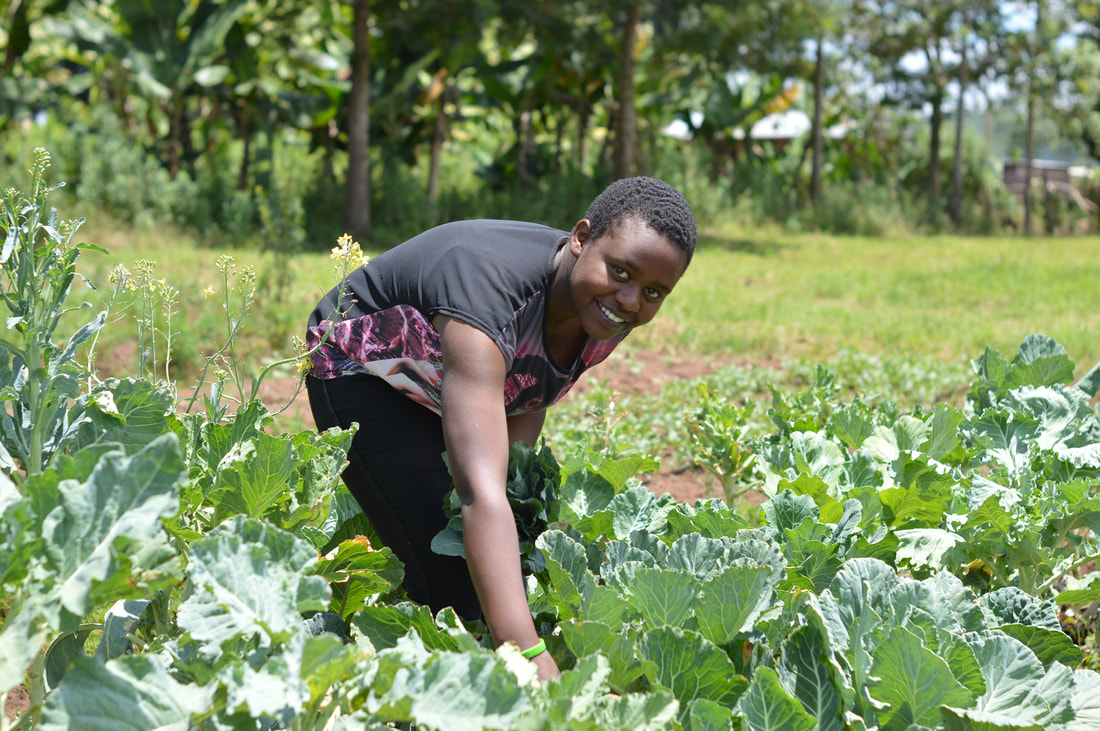
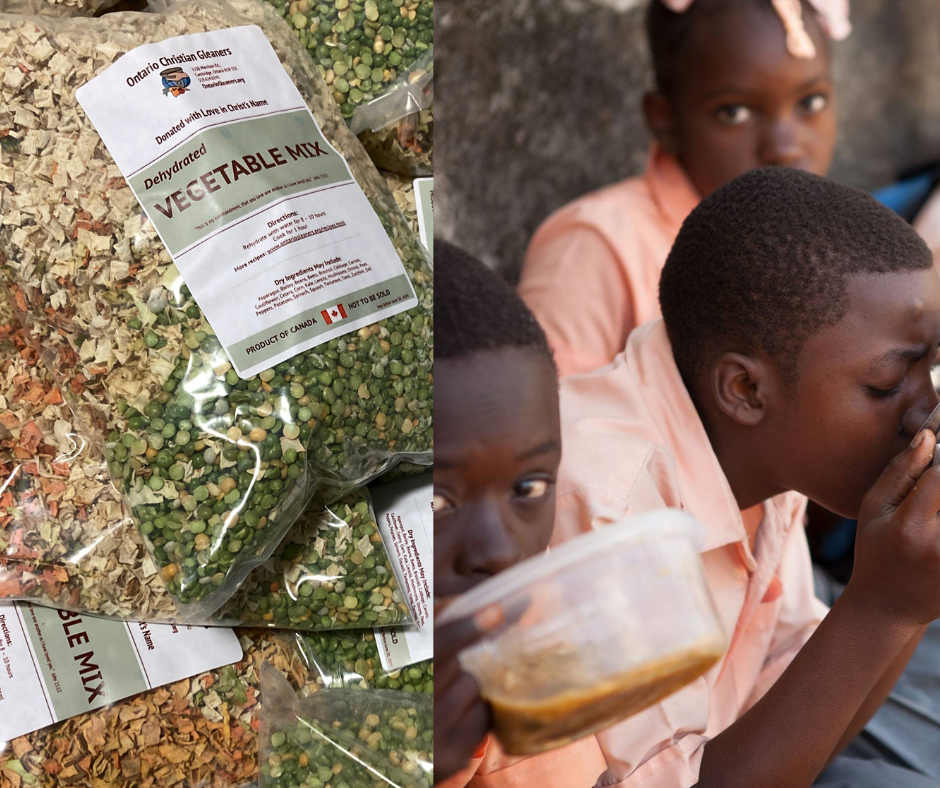
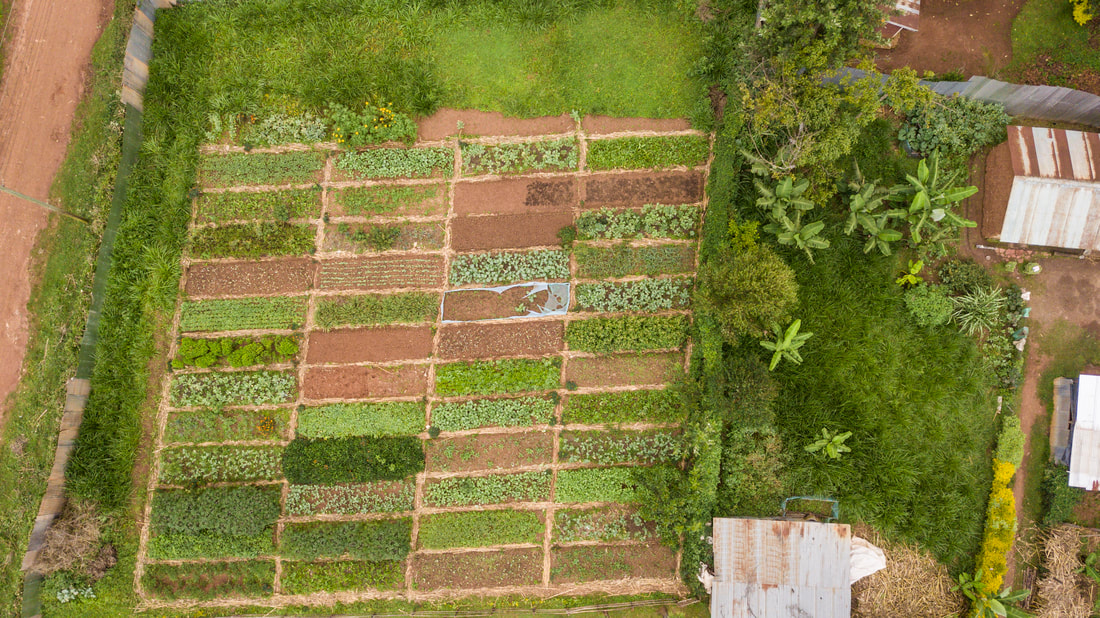
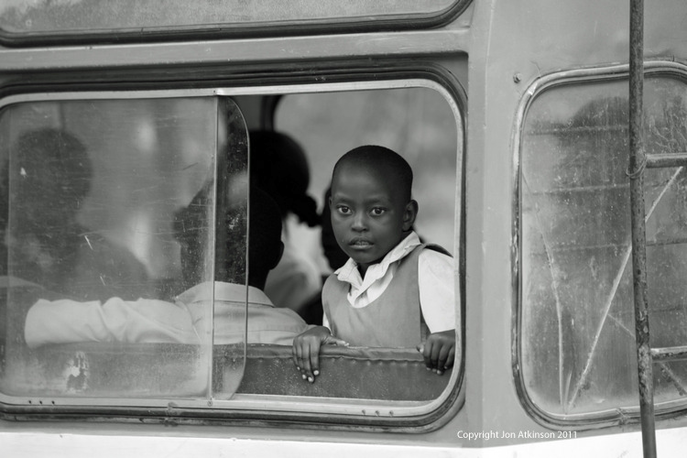
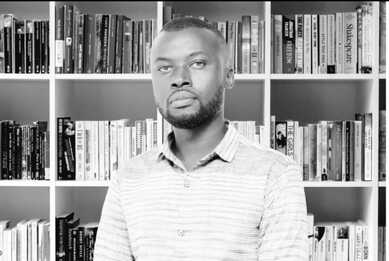
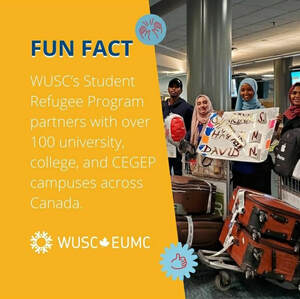
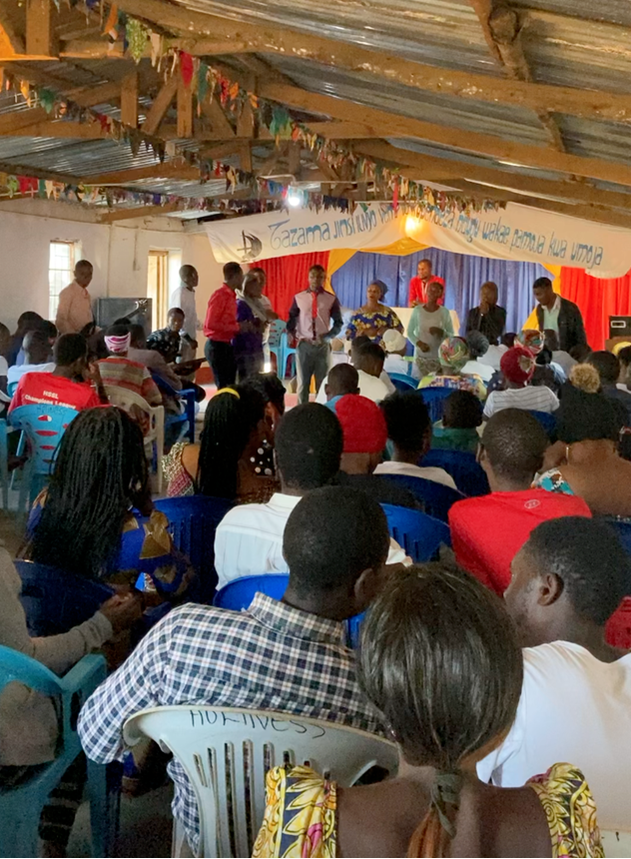
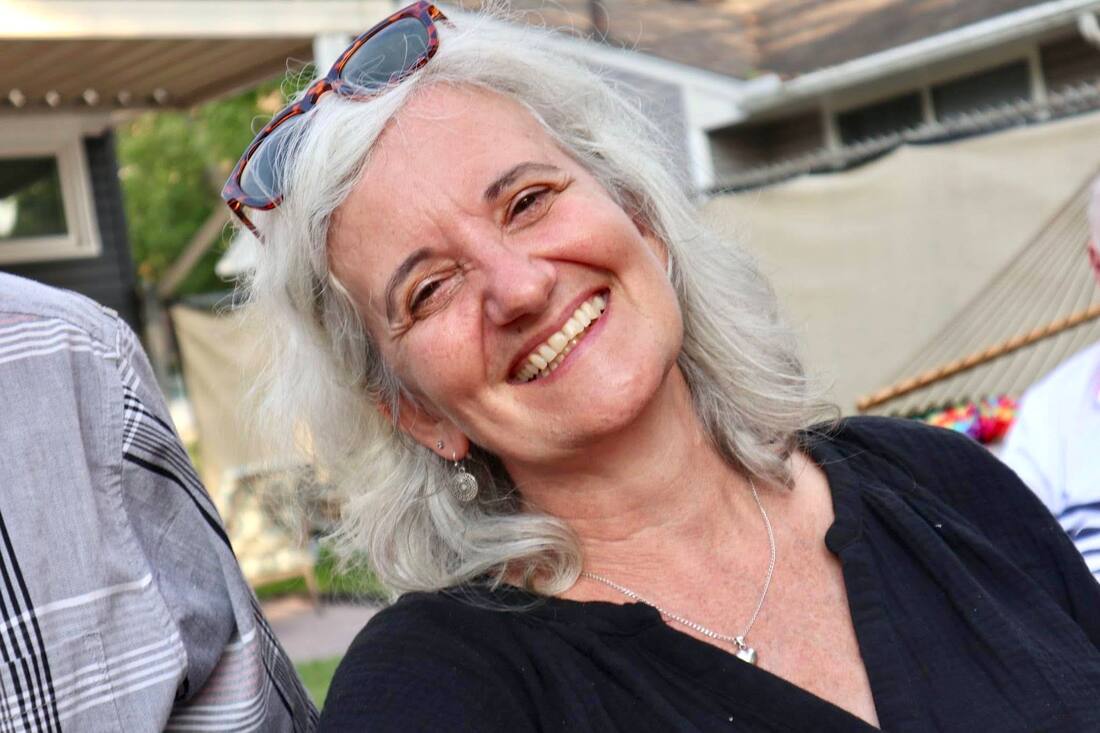
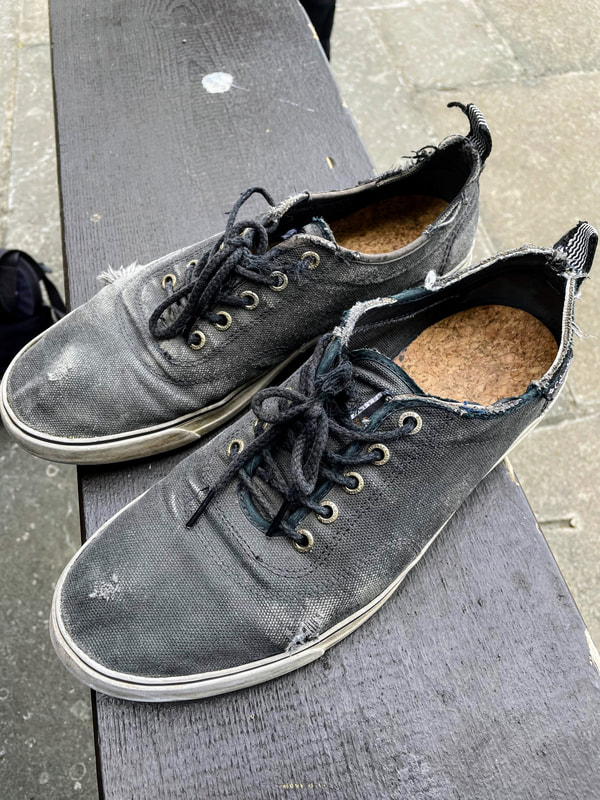
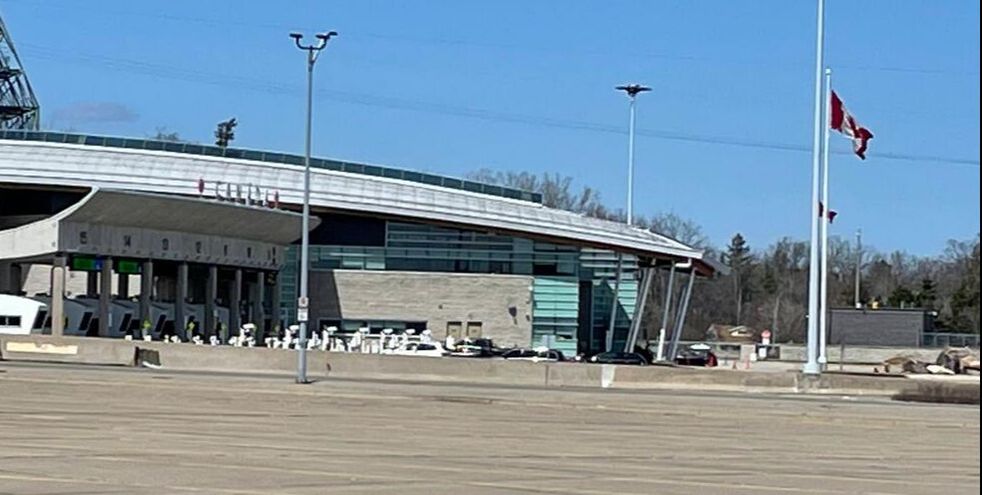
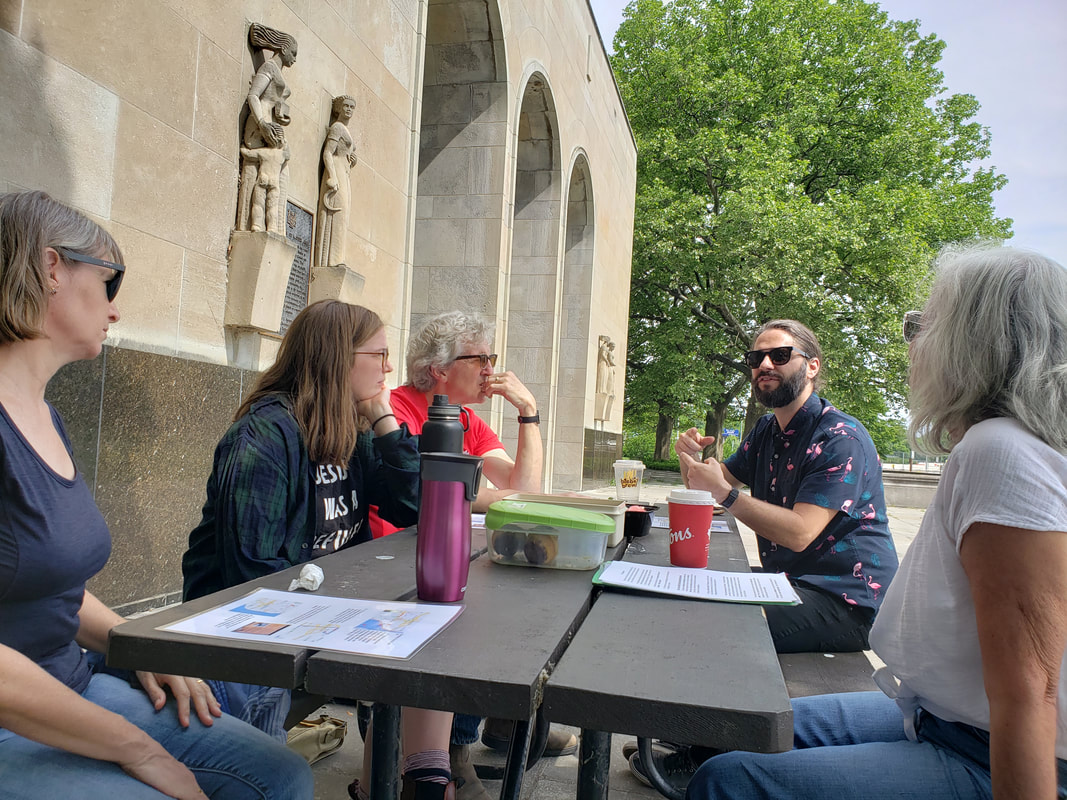
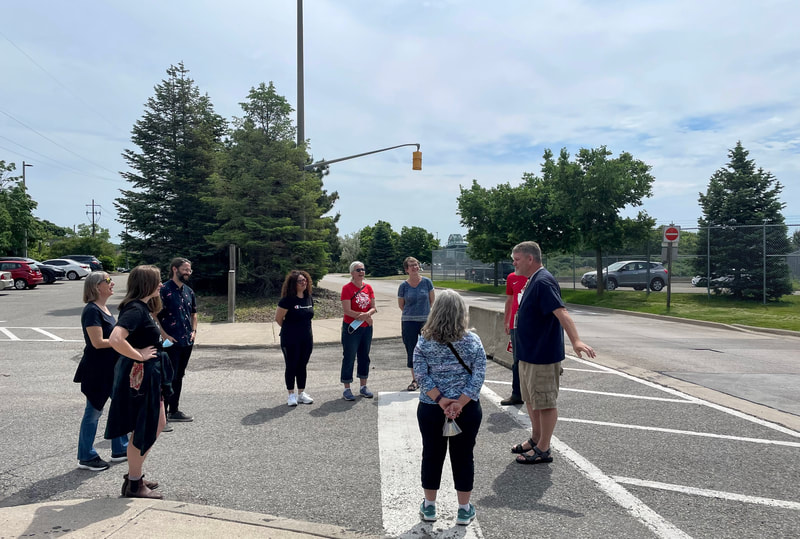
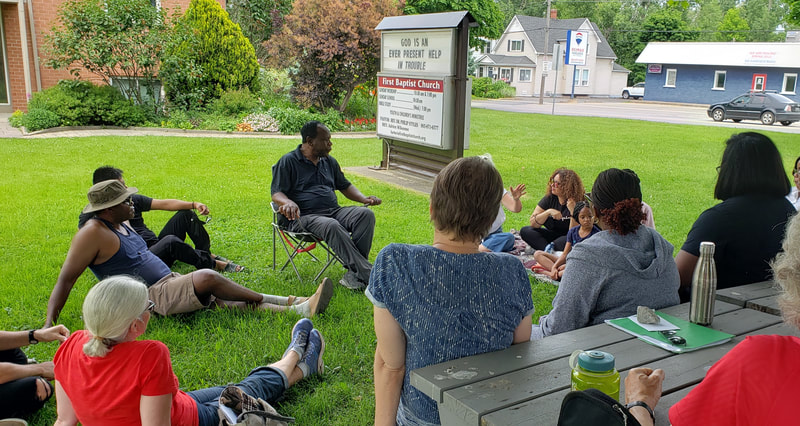
 RSS Feed
RSS Feed